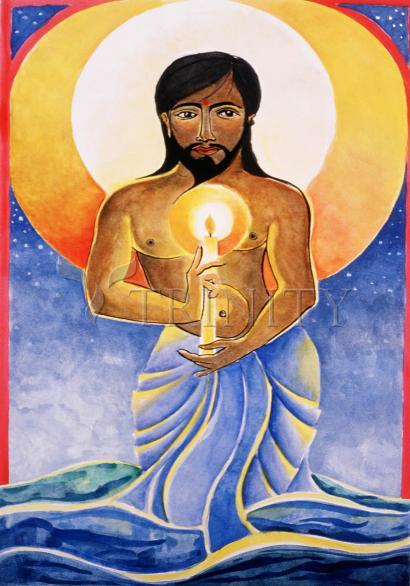Collection: Jesus: Light of the World

-
Sale
Wood Plaque Premium
Regular price From $99.95 USDRegular priceUnit price per$111.06 USDSale price From $99.95 USDSale -
Sale
Wood Plaque
Regular price From $34.95 USDRegular priceUnit price per$38.83 USDSale price From $34.95 USDSale -
Sale
Wall Frame Espresso
Regular price From $139.95 USDRegular priceUnit price per$155.50 USDSale price From $139.95 USDSale -
Sale
Wall Frame Gold
Regular price From $139.95 USDRegular priceUnit price per$155.50 USDSale price From $139.95 USDSale -
Sale
Wall Frame Black
Regular price From $139.95 USDRegular priceUnit price per$155.50 USDSale price From $139.95 USDSale -
Sale
Canvas Print
Regular price From $84.95 USDRegular priceUnit price per$94.39 USDSale price From $84.95 USDSale -
Sale
Metal Print
Regular price From $114.95 USDRegular priceUnit price per$127.72 USDSale price From $114.95 USDSale -
Sale
Acrylic Print
Regular price From $114.95 USDRegular priceUnit price per$127.72 USDSale price From $114.95 USDSale -
Sale
Giclée Print
Regular price From $19.95 USDRegular priceUnit price per$22.17 USDSale price From $19.95 USDSale -
Custom Text Note Card
Regular price From $300.00 USDRegular priceUnit price per$333.33 USDSale price From $300.00 USDSale
ARTIST: Br. Mickey McGrath, OSFS
ARTWORK NARRATIVE:
“I am the Light of the world” (John 8:12) is the second of seven “I AM” declarations of Jesus, recorded only in John’s gospel, that point to His unique divine identity and purpose. In declaring Himself to be the Light of the world, Jesus was claiming that He is the exclusive source of spiritual light. No other source of spiritual truth is available to mankind.
- Art Collection:
-
Christ Images
- McGrath collection:
-
Images of Christ
"Epiphany" is a word of Greek origin, related to such English words as "theophany," "phenotype," and "phenomenon." It means an appearance, a displaying, a showing forth, amaking clear or public or obvious. On this day, Christians have traditionally celebrated themaking known of Jesus Christ to the world.
Several events have been thought of as special instances of the making known of Our Lord,such as: His birth; the coming of the Magi; His Baptism; His first miracle at Cana. Currentmajority usage, at least in the West, celebrates His birth on 25 December, the coming of theMagi on 6 January, and His Baptism on the next Sunday. On the following Sundays up to thebeginning of Lent, we remember Our Lord's public preaching of the kingdom, particularly theearlier stages of that preaching when opposition had not yet crystallized. On the Last Sundayafter Epiphany (the Sunday before Lent), we commemorate the Transfiguration, the climax ofthis first phase of our Lord's public ministry.
On Epiphany, then, we commemorate the visit of the Magi, a token of the day when all the peoples ofthe earth will acknowledge Jesus Christ as Lord, God, and Savior. The visit of the Magi isrecorded in the second chapter of Matthew. MAGI, (the Latin plural ofMAGUS), referred originally to the priests of Parsiism, the monotheistic religionpreached in Persia by Zoroaster in about the sixth century BC. In later years it came to meanmagicians, priests, physicians, scribes, scholars, or learned men. From it we derive our word"magic." The KingJames Version of the Bible translates the word as "wise men." Matthew tells us how they came toJerusalem and then to Bethlehem, and gave gifts to the infant Jesus.
In poem and picture, the wise men came to be thought of as three kings, and in many countries(particularly Spanish-speaking ones), children receive gifts, not on 25 December, but on 6January in memory of the gifts that the wise men brought to the Holy Child. Christian writershave interpreted the gold as a sign that Jesus is King, the Frankincense as a sign that He is God,and the myrrh (used in embalming) as a sign that He is by His death and Resurrection the Saviorof the world. This imagery is found in the song, "We Three Kings of Orient Are."


















